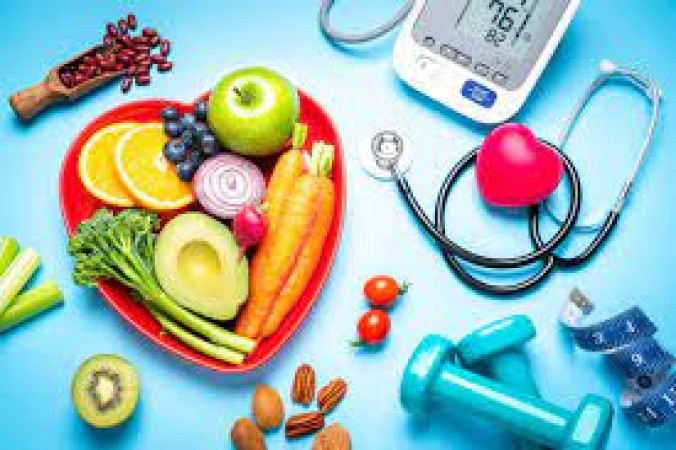
Maintaining healthy cholesterol levels is crucial for overall well-being. High cholesterol levels can significantly increase the risk of heart disease and stroke, two leading causes of death worldwide. However, several dietary choices can act as "vacuum cleaners" for cholesterol, effectively lowering levels and promoting cardiovascular health. Incorporating these foods into your diet can make a significant difference in managing cholesterol levels and reducing the risk of heart-related issues.
Fiber: The Cholesterol Cleaner
Fiber: Your Ally Against Cholesterol
Dietary fiber is like a sponge that soaks up cholesterol in the bloodstream, preventing it from being absorbed into the body. Soluble fiber, in particular, binds to cholesterol and removes it from the body through waste. Including ample amounts of fiber-rich foods in your diet can help lower LDL (bad) cholesterol levels, reducing the risk of plaque buildup in the arteries.
Powerful Plant Sterols
Harnessing the Power of Plant Sterols
Plant sterols, found naturally in fruits, vegetables, nuts, and seeds, mimic the structure of cholesterol. When consumed, they compete with cholesterol for absorption in the digestive system, effectively reducing cholesterol levels in the bloodstream. Adding foods rich in plant sterols to your meals can contribute to lowering LDL cholesterol and promoting heart health.
Heart-Healthy Fats
Nourishing Your Heart with Healthy Fats
Not all fats are created equal. While saturated and trans fats can raise LDL cholesterol levels, monounsaturated and polyunsaturated fats have the opposite effect. These heart-healthy fats can help lower LDL cholesterol and raise HDL (good) cholesterol levels, offering protection against heart disease. Incorporating foods rich in these beneficial fats into your diet can have a positive impact on cholesterol levels and overall cardiovascular health.
Omega-3 Fatty Acids: The Heart's Best Friend
Omega-3 Fatty Acids: Essential for Heart Health
Omega-3 fatty acids, commonly found in fatty fish like salmon, mackerel, and trout, are renowned for their cardiovascular benefits. They help lower triglyceride levels, reduce inflammation, and decrease the risk of blood clot formation, all of which contribute to a healthier heart. Including omega-3-rich foods in your diet or taking supplements can support cholesterol management and reduce the risk of heart disease.
Antioxidant-Rich Superfoods
Antioxidants: Nature's Defense Against Cholesterol
Antioxidants are compounds that protect the body from oxidative damage caused by free radicals. Many antioxidant-rich foods also contain other heart-healthy nutrients that can help lower cholesterol levels. Berries, dark leafy greens, citrus fruits, and nuts are excellent sources of antioxidants that support cardiovascular health. Adding these superfoods to your diet can provide a powerful defense against high cholesterol and its associated risks.
The Role of Lifestyle Factors
Beyond Diet: Lifestyle Changes for Better Cholesterol
In addition to dietary choices, lifestyle factors play a significant role in cholesterol management. Regular physical activity, maintaining a healthy weight, managing stress, and avoiding smoking are all crucial for optimal heart health. By incorporating these lifestyle changes alongside a cholesterol-lowering diet, you can enhance the effectiveness of your efforts and enjoy long-term cardiovascular wellness. Incorporating specific foods into your diet can act as "vacuum cleaners" for cholesterol, helping to lower levels and reduce the risk of heart disease. By emphasizing fiber-rich foods, plant sterols, heart-healthy fats, omega-3 fatty acids, and antioxidant-rich superfoods, you can support optimal cholesterol management and promote overall cardiovascular health. Combined with lifestyle factors such as regular exercise and weight management, these dietary choices can make a significant difference in protecting your heart for years to come.
Vitamin E: What to do if there is Vitamin E deficiency? Nutritionist gave list of 6 foods
Hypoglycemia: What is hypoglycemia? Nutritionist told its 9 important symptoms